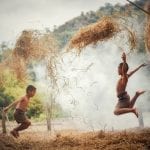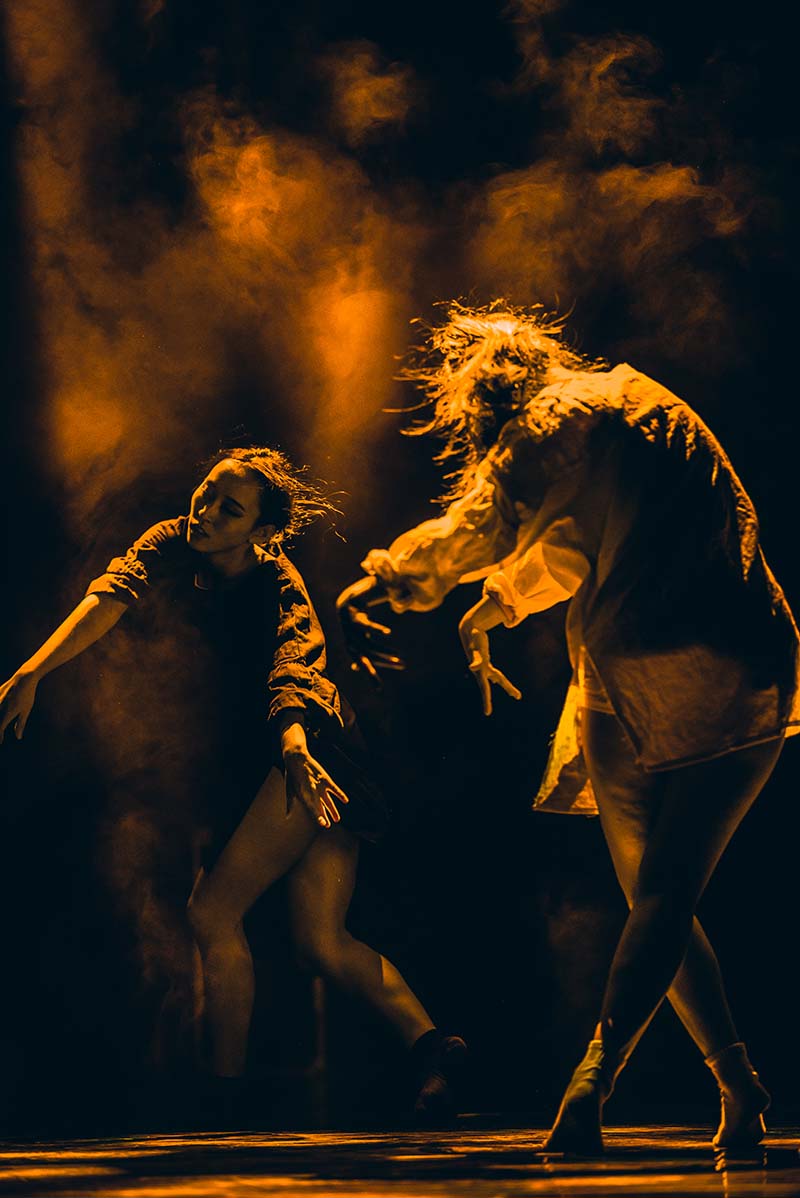The current feature is from the new Inwood Indiana book, Crossroads, written by David Hukill.
——————-
Inwood Station
Just east of Plymouth, Indiana, out on a craggy stretch of the old Lincoln Highway, sits a grimy brick shit house with a mansard roof, three walls of windows and a gravel parking lot. The neon sign that once sat atop the roof said Karl’s Five‘n Grill. Now, there was no sign; not even a piece of plywood with spray paint. The twenty-seat grease trap had nothing more than a sun-bleached exterior slathered with yearly coats of milk paint and spite. Stripped down foundations straddled the relic as hoary footprints of a forgotten time. There weren’t any trees to provide shade, no bushes, nothing decorative—just ugly weeds and a few black rat snakes.
The hot griddle behind the counter was sputtering and snapping with microscopic pieces of egg shooting across the diner, evaporating. A guy by the name of Rhett was cooking. City folk would have dubbed him a lummox, an oaf, broad shoulders with more hair on his back than his head. He was tall, scowling, his few tufts of hair dusty black with flecks of greasy gray, cut short, high and tight underneath a paper hat. He wore a tank top underneath his bloodstained apron. Local kids told stories that Rhett butchered his own meat. Their parents hushed them with grave-concern.
Darla was serving. She sat on a stool in the corner between two yellow-stained greasy walls, admiring her cherry lipstick in a purse mirror. She would occasionally run her tongue over her teeth, underneath her lips, as if to wipe away errant lipstick. In fact, she was sucking out pieces of undercooked meat from the cracks. She was tall, too, taller than most women. She had permed mahogany hair, a long nose with a pocked bulb of nostrils. Her lips were thin on top and thick along the bottom. She would sometimes go into the men’s bathroom at Pamida, her lips smeared with red lipstick. She would kiss the stall door, big and full, and hot. She wanted guys to imagine her lips while their wives waited outside.
Kevin and Susan were from the city. They’d bellied up to places like this before. In fact, they considered themselves hip to the small town scene. Kevin worked in accounting at an insurance company. Susan’s dreams of being an artist had long passed. She worked part-time at an upscale grocery store in Indianapolis.
Every Saturday, Kevin would saddle up his blue Toyota Camry, and head out to a town with a name that was all but forgotten. He would hoist his Canon EOS 6D over one shoulder, his padded bag full of lenses over the other. He often photographed aging consolidated schools, their innards made of oak and stone, spray painted and salvaged away. Or he would hap upon an old train station boarded and bricked up with signs like, “Warning,” or, “No Trespassing.”
Meanwhile, Susan would sit almost a mile away in the couple’s car, reading dog-eared issues of Rolling Stone, or Wired. If her phone had reception, she would sometimes call her mother, Ivy, and listen to the woman cackle and sputter, a fresh cigarette always at hand—anything to kill the boredom, because if it wasn’t this, it wasn’t anything.
On the way into a town, Kevin insisted they stop at whatever local diner was at hand. Susan never questioned, never complained. She entered, ate the food, swallowed it down, never so much as murmured. Kevin was too boyish, too naïve to believe that Susan hated small town food. It was greasy. It sat heavy. It made her hair smell for the rest of the day. Going into those places was like standing in a spray tanner full of acrid smoke and grease. But persist, she did.
“What’s a good place to take pictures around here?” Kevin asked Rhett and Darla. He sipped his coffee waiting for a response.
Rhett had his back turned. His teeth were grinding back and forth slowly. The spatula was made of metal. When Rhett was young, the doctors told his mother not to allow him to play with sharp metal objects. And now look at him. What a big man he was now. Think of all the things he could do with that spatula.
Darla also heard Kevin’s question, but chose to ignore it. She popped her mirror closed, and put it in her purse under the counter. She stood up from her stool, grabbed two plates from a rack and set them near Rhett.
“More coffee?” she asked dryly.
Susan nodded, her eyes glued to an issue of National Geographic.
Kevin drank what was left and set the cup down with a smile, “Thanks.” He squinted to see Darla’s nametag covered by the open collar of her shirt. Her décolletage was quite apparent.
She looked into his eyes as she filled his cup. It wasn’t a saucy look; it was half-eyed disinterest, feigned politeness, crisp.
She turned and poured coffee into Susan’s cup.
“So Darla, what’s a good place to take pictures nearby?”
“I heard you the first time,” Darla said unenthusiastically. She dribbled coffee from the pot after pouring Susan’s cup.
“You guys have any old buildings around? Anything abandoned or falling apart?” Kevin persisted.
“Yeah,” Darla snorted, “like, the whole damn town.” She smacked her gum and shook her head.
“Fair enough,” Kevin nodded, still smiling. He wasn’t impressed with the coffee. It was inky and iridescent. It smelled burnt.
Rhett turned with two plates in his hand, “Sausage and biscuits, and…” he looked back at the ticket, “Waffles and eggs.” Although the food had been prepared correctly, neither of them ordered any of the things Rhett just named. Kevin looked him in the eyes, looked at him through the hollows, black and vacant, and so suddenly flushing with venom.
“I’ll take the…uh, sausage,” Kevin nodded. “She has the waffles.”
Rhett set the plate in front of Susan quietly, so as not to disturb her reading.
“So Rhett, what about Inwood?” Kevin asked.
Rhett stopped cold in his tracks, his eyes staring down at his shoes. Darla looked up from her purse, brows together.
“Inwood, Iowa?” Rhett asked calmly.
Kevin cocked his head, “Is there…there’s an Inwood, Iowa?”
Rhett suddenly came back to life, resuming his shuffle into the back room. Darla closed her purse and followed.
“Nice job, Sherlock,” Susan mumbled from her magazine.
“Jeez, must be a touchy subject around here.”
In truth, Kevin half hoped an old man would be sitting in the diner reading a newspaper. The man would overhear his question and provide a treasure trove of strange history about Inwood. But there was no one. Only a few construction workers ever ate there anyway, and they didn’t like working weekends.
The couple ate their food slowly, Darla occasionally peeking out from the back room to fill their coffee. There was, in fact, no conspiracy. There was a 15” flat screen in the storeroom with poor digital reception. The manager quit years ago, and the family who owned the place never stopped in anymore. No one cared who saw what these days, just so long as there was enough cash to go around at the end of the night.
Kevin left a modest tip and penned his displeasure on the receipt, “I pay well for info!” Neither Rhett nor Darla gave a shit. Susan had nearly finished her magazine by the time the two hit the road. Inwood was only about ten miles east of the diner. Kevin had seen an old railroad map that pinned a station nearby. He wanted to see if the interior had somehow survived looting.
After looking over a road atlas of the state, Kevin set coordinates on his dash-mounted GPS and set sail. That was back in Indianapolis, two and a half hours ago. After finishing lunch, the road seemed longer and stranger than the GPS let on. In fact, after nearly twenty minutes, Kevin slowed down and pulled to the side of the road. He unhooked his GPS and brought it to his eyes.
“What’s wrong, honey?” Susan asked dispassionately.
“I don’t know. We headed in the right direction and the estimated time was seven minutes. We’ve been driving for twenty, and the estimated time is still seven minutes.”
“Huh,” Susan muttered. “Why don’t you head back to the diner and start over?”
Kevin nearly responded with a quick negative, but stopped himself short. According to the atlas, Inwood was roughly ten miles from Plymouth on Lincoln Highway. He knew that with certainty, but a creeping sense of doubt made him wonder if Inwood was really off US Highway 30. Perhaps he could ask someone at the diner for directions.
Kevin turned the car around and headed back. Susan didn’t notice one wink. Kevin was surprised, and quite alarmed, when he happened upon the diner after only seven minutes of driving.
“Susan,” he said, fingering his lips.
“Yes,” she looked up from her magazine.
“That drive, from where we stopped…only took seven minutes.”
“Uh huh,” she looked at him vacantly.
“Yeah.”
She nodded and put her eyes back down into her magazine.
“But I drove twenty minutes away from here before I stopped,” Kevin said with dire certainty.
“Alright, I believe you,” Susan said.
Kevin shook his head, confused. He looked back at the GPS, but it offered no assistance, no direction, no answers. “I’ll go in and see what they say,” he finally mumbled, setting the GPS back on the dash.
He stepped out onto the gravel and approached the entrance. The blinds were drawn in all of the windows, and a sign fashioned from one of the cash receipts was taped between the screen and front doors. “Closd” was scrawled in black marker across the sheet. Kevin tried the handle anyway, but it was locked.
He walked back to the car, got in, and started the engine. He sat. He thought.
“What did they say?” Susan masked her impatience.
“Who?” Kevin asked.
Susan looked over at the diner, to which Kevin responded, “Oh, yeah, them. They’re not in there. Closed shop.” He chuckled, “Or claw-sd shop, as they wrote.”
Susan raised her eyebrows and returned to her magazine, “So are we going to Inwood, or have you given up?”
Kevin reversed the car without answering and checked the GPS. Ten miles, straight ahead. East. “Inwood,” he said aloud.
After another twenty minutes of driving, Kevin started to sweat. “This damn thing,” he muttered. He pounded his fist on the dash, as if to unsettle the GPS. “Work!”
“I’m sure it’s not the machine,” Susan shook her head. “Here, let me see it.”
She grabbed it from the dash and turned it in a number of different directions before settling on, what appeared to be, the correct orientation. “Are you sure this thing even works?”
“Well, yes, it got us out here,” Kevin snorted. “Obviously, we couldn’t have found the diner without it.”
“Well, then maybe Inwood has vanished. That happens to all sorts of towns we’ve tried to find.”
Kevin shook his head as if to placate, “Yes, honey, that’s right, but the damn GPS is saying we’re still 10 miles away from it, thirty miles ago. You see what I mean?”
She shrugged, “Maybe you bought a damn Positioning System, instead of the real thing. Did you check the box?”
Kevin shook his head and looked out the window.
“I thought that was funny.” Susan smirked and looked back into her magazine.
“Well maybe if you’d help me, we’d get there,” Kevin sighed bitterly.
“Ok,” Susan closed the magazine, “what do you want me to do?”
“Could you pull up a map on your phone?”
She produced a phone from her purse and managed to turn it on. “It’s not…hmm,” she cocked her head, “there’s no signal out here.”
“Probably not, no cell towers for miles.”
“No internet either. It won’t even let me get into a map.”
Kevin shook his head and stared out his window, muttering expletives to himself.
“Why don’t you just keep driving, dear? You’re not going to fall off the edge of the Earth, you know.”
Kevin nodded, cranked the wheel and accelerated quickly.
This time, Susan did not open her magazine. Instead, she kept her face glued to the GPS. After nearly ten minutes of driving, she puckered her mouth, “Huh, that’s weird. You’re right. This thing says there’s seven more minutes.” She turned the GPS over to make sure it was still plugged in, “But we’ve driven at least ten minutes. I watched the clock.”
“Yeah, I know,” Kevin said bitterly, “it’s been thirty minutes since we left the diner.”
They both looked out the window—nothing but cornfields, followed by hills of green grass, trees, the occasional fence. “At least we know we’re in Indiana,” Susan smiled.
“It’s definitely not Kansas, and you’re not Toto,” Kevin sighed, the humor simply not sparking.
“How much longer should we drive?” Susan asked, but just as suddenly sat back in her seat and let out a yelp.
“What the…” Kevin slowed the car down from eighty to thirty miles an hour.
To their right, along the side of the road and very nearly in the ditch, stood an entire carnival of parked diesel rides, boarded up attractions, wagons, trailers, and cars. The rear trailer had a beautifully painted advertisement in blue and white around a clown’s smiling face: Col. Spec’s Mighty Blue Grass Amusements.
The shining eyes of wandering carnies followed Kevin’s Toyota as if they had not seen another living soul in decades. As Kevin approached the front of the caravan, a hardened looking man stepped off an old Indian motorcycle and stood in the path of the car.
“Oh my god,” Susan said, gripping the side of her seat, “what the hell is he doing?”
“Not sure,” said Kevin as he drew the car to a stop. He rolled down his window and thought to himself that this was definitely one of those times he wished he’d carried a revolver.
The biker wore beige denim jeans underneath a pair of dusty and worn chaps. His leather vest sported dimly colored insignia, but Kevin could not determine to which gang the man belonged. His hair was long and black, and greasy—his face chapped, his eyes murky and green. With a scowl that set Kevin’s throat tight, the man approached the window.
“What can I do for you?” Kevin beamed.
“Where the hell are we?” the biker asked. There was a strange combustible mix of fear and anger in the man’s eyes. It dripped from his chipped teeth, and oozed from his sweating pores.
“We’re in…Indiana,” Kevin said hesitantly.
“But where?” the man asked again.
“I’m not sure,” Kevin answered. He suddenly remembered that over five thousand dollars in camera equipment was sitting in his backseat, ripe for the raw hands of any biker that should decide to take it.
“Dammit!” the biker cursed, slamming his gnarled hands down on Kevin’s windowsill. Both Kevin and Susan jumped in their seats. “Where were you headed?” the biker asked.
“We were…” Kevin looked at Susan. She was shaking her head quickly, as if to warn him. “Um,” he licked his lips and thought, “uh…”
“Spit it out,” the biker growled.
“Inwood. We were looking for a train station in Inwood,” Kevin’s heart leapt into his throat.
“Oh no,” the biker’s eyes suddenly rolled back in his head. “No, no, no, no.” Tears began forming at the corners of his eyes. He stumbled away from the car, crossed the road and nearly fell onto his bike. He set his eyes into his hand as his body was wracked with visible sobs.
“Shit,” Kevin whispered.
“Honey, drive the car,” Susan said grabbing Kevin’s arm. Her little porcelain hand was hot and scared, gripping firmly.
Kevin shifted into gear and sent his wheels spinning against the pavement. It was nearly ten minutes before he looked in his rearview mirror to see nothing, and no one, in the distance. Only the fields of corn, the rolling hills, the fences, the greenery. It was as if the land swallowed itself up behind the car, sending nothing but corn, and pavement, and fences in its wake.
“What are we going to do?” Kevin asked himself quietly.
“Keep driving,” Susan answered.
“What does the GPS say?”
“Ten miles, ten minutes.”
“Son of a bitch,” Kevin cursed. “Rotten son of a bitch! I mean…aren’t we close to anything? We have to be heading somewhere.”
“Have you seen any signs?” Susan asked.
“No dammit, this is an old piece of road. You can’t rely on anyone to update the signage.”
“Well there has to be a town somewhere,” Susan said.
Kevin slammed on his breaks, hard. The car skidded, screeched, peeled to a halt. Susan’s hand shot up to the ceiling to steady herself.
“Dammit, Kevin, what was that for?” Susan asked, but as she looked out ahead of the car, in the distance, she could see an old trailer, painted, with words in white and blue. A clown’s face smiled back at them.
Electric chills ran up and down her spine, and she nearly cried out, but stopped without breath.
Kevin swallowed hard, “We have to get out of here.”
“What the hell is this?” Susan’s voice started to split.
“I don’t know,” Kevin said, and pushed the gas pedal down as hard as he could. All six cylinders burst into action as the vehicle hit 60 in six seconds. They cruised by the entire carnival and their biker comrade in a blur, neither occupant able to see as the car dashed past at over 100 miles an hour.
“These are the same damn cornfields, Kevin.” Susan was shaking. Her hand was still clenching his arm as if it were bolted down.
The GPS still read ten miles. Kevin rolled down the window and threw the unit out into the road.
“Why did you do that!?” Susan pleaded. “We have to go back! We have to get that!”
“What for?” Kevin asked sourly. “That’s half the damn problem.”
The car didn’t slow down as they approached the carnival again. Kevin kept the pedal to the floor and sped by unceremoniously. Twice.
After seeing the biker sobbing into his hand a fourth time, Susan finally burst into tears, “Oh my god, what is happening to us?”
Once more, Kevin slammed on the breaks. He reached up and turned off the ignition. The engine stopped, and there was silence. A nearby cricket had begun to chirp. It was somewhere out of sight, off the road, between shoots of tall grass. Kevin looked at the clock. Darkness had just touched the sky. Eight at night in the summer was bright, but not hot. Street lamps would be flickering to life back at home. Dinner would have been consumed an hour and a half ago. Frankly, neither passenger was hungry now.
An old turkey vulture floated in the air somewhere above the car. There was a breeze coming from the north, cool and sweet. “We’re going to run out of gas,” Kevin finally said. “We can’t just keep driving like this.”
Susan nodded. Although the swell inside her was painful and frantic, she took deep breaths and exhaled.
There was another period of silence before something finally dawned on Susan, “Kevin, turn around.”
Kevin immediately looked behind him, but there was nothing. Just cornfields. Road. The dim sky. “What?” he asked.
“Turn the car around. Remember…how we went back to the diner? And it only took seven minutes? Maybe…”
“Yes!” Kevin’s hands slapped against the wheel. “Of course. Oh dear, thank you!” He reached over and kissed Susan on her forehead, sloppy and wet
Kevin cranked the ignition, spun the wheel around, and floored the pedal. The cornfields jumped by the car with alarming certainty. Hope and joy leapt into Kevin’s throat, and Susan smiled, chuckling. It was all over. So simple. It would be a good night. Finality, Closure. Home.
Just as it had before, the two passengers saw a structure in the distance after only seven minutes.
“Look,” Susan yelled, “there it is! There’s the diner!”
Kevin was nodding and smiling, and slapping the wheel with excitement. But the mood quickly decayed, and their hearts dropped into the pits of their stomachs. As the structure approached, they no longer saw a milk paint diner. They had reached the edge of town, but it wasn’t Plymouth. A small faded sign marked the edge of the road. It read, “Inwood.”
Kevin slowed the car and pulled off the road. There was no greasy eatery, only a red brick building. Red painted plywood had replaced the outside windows. A rusted coal hatch was haphazardly built into one wall—looking like it had been welded shut a century ago. The gable roof was covered in black clay shingles; something resembling a mission style home, but twisted and tarnished. Bolted footings stood against a pale concrete pad nearby, where an old water tower had stood in the days of steam engines.
Kevin and Susan got out of the car and shut their doors. The sun had fallen; the pale moon reflected everything back to them. They both walked to the foot of the building and stared down the tracks, off into the infinite distance. A hand painted sign was stuck in the ground. The faded red letters spelled CF&E.
“Chicago, Fort Wayne and Eastern,” Kevin said, as if in a trance.
“What’s that?” Susan asked.
“It’s a railway—a freight line.”
“What does that mean?” she asked.
“CF&E is a modern freight line…it’s part of the old Norfolk Southern route.”
Susan looked off at the sign and shook her head, “So what? You’re not making any sense, Kevin.”
“It means these tracks are still active. Well…” he placed his finger to his lips, “the tracks are anyway. The station is obviously not being used.”
They turned toward the eerily preserved station, which stood ominously, an entity observing self-preservation of its own accord. Kevin approached the platform where passengers and freight loaders had stood decades in the past.
“If we could just…if we could just get on one of the passing trains…maybe we could get out of here.”
“But I thought trains went really fast through the country?” “They do,” Kevin nodded, “really fast. Like, probably seventy miles an hour; maybe more depending on their freight.”
“We couldn’t possibly catch that,” Susan shook her head. Her voice began to crack again. “We’re going to be stuck out here in this, this…dimension…”
A long, shrill moan sounded in the distance. The two of them froze. Silence. A moment lapsed. Again, the moan in the distance neared. It was a terrifying, evil sound. Kevin leapt up on the platform and looked out, down the tracks. He stood there for a moment, looking hard, and then jumped down.
“I can see the head lamps.”
“Of what, a train?” Susan asked.
“Yes,” Kevin said. He ran and opened the car door, grabbing his camera equipment.
“What are you doing?” Susan shouted after him, but she knew what he was after. She watched him run all the way back to the station.
“I know what you’re thinking…and you know what I’m thinking,” Kevin said, an air of desperation in his voice.
“Do we have to do this?” Susan asked, on the brink of tears.
“Don’t worry, honey,” Kevin wrapped his arms around her. He brought his lips to her hair and kissed her head. “Remember – if I don’t make it, you have to hold on tight, OK? Don’t, let, go.”
The horn was much louder this time, as if they were both staring down the giant throat of some demonic creature. The train approached at high speed, the cars rocking to and fro over imperfections in the track. The blistering lamps approached like a rocket. Kevin looked into Susan’s eyes and mouthed, “I love you.” They both took positions next to the tracks. The earth began rumbling underneath. The horn broke once more; sparks shot out from the wheels that were pounding seventy-miles-an-hour-forward.
The engine passed suddenly, sending their hair backwards with a sharp gust of diesel exhaust and wind. They looked at each other, then at the train. With a spring of their heels, they jumped together.
David Hukill















